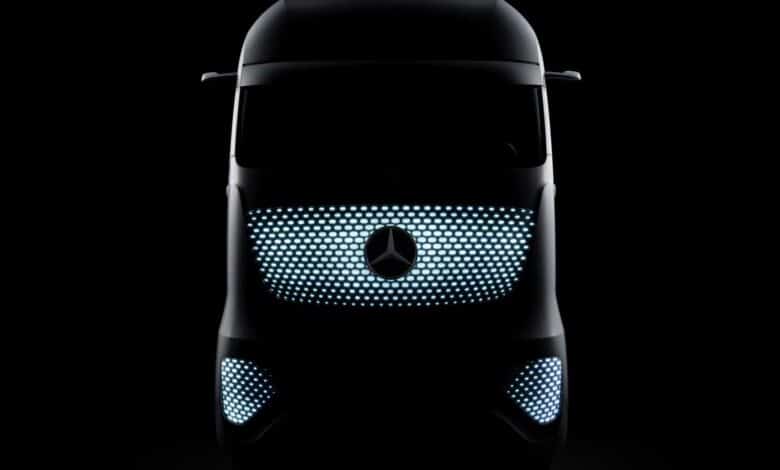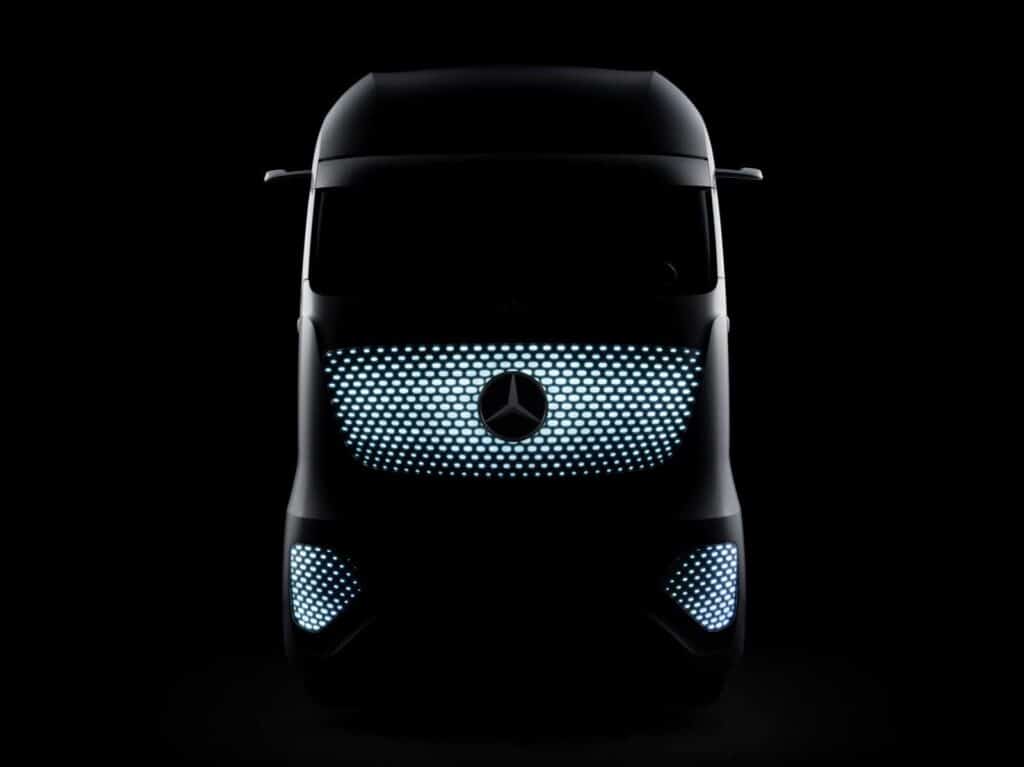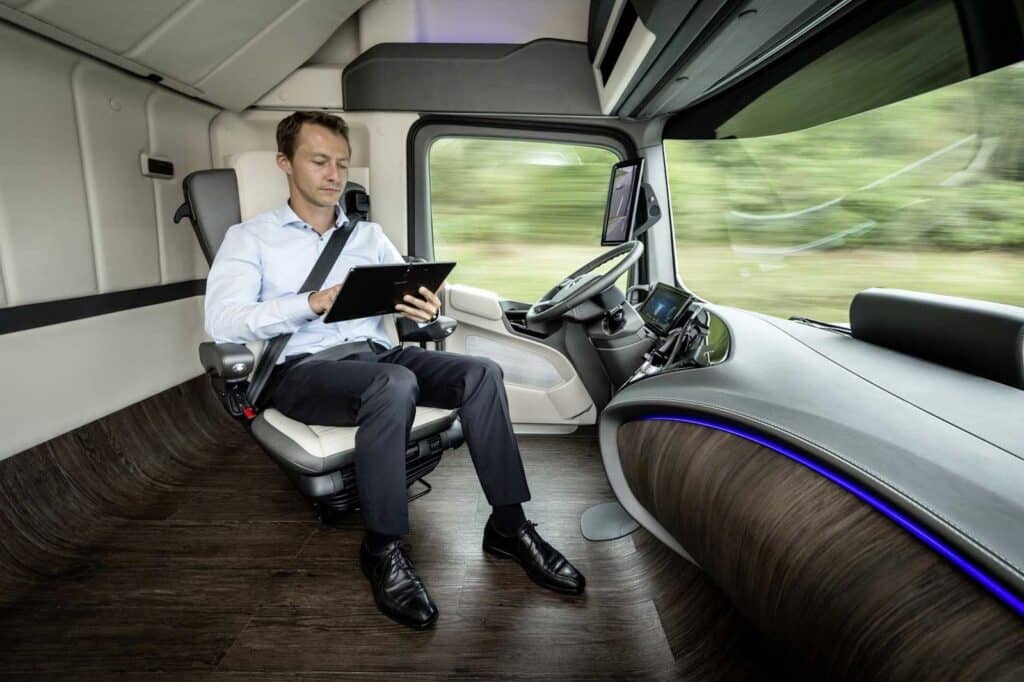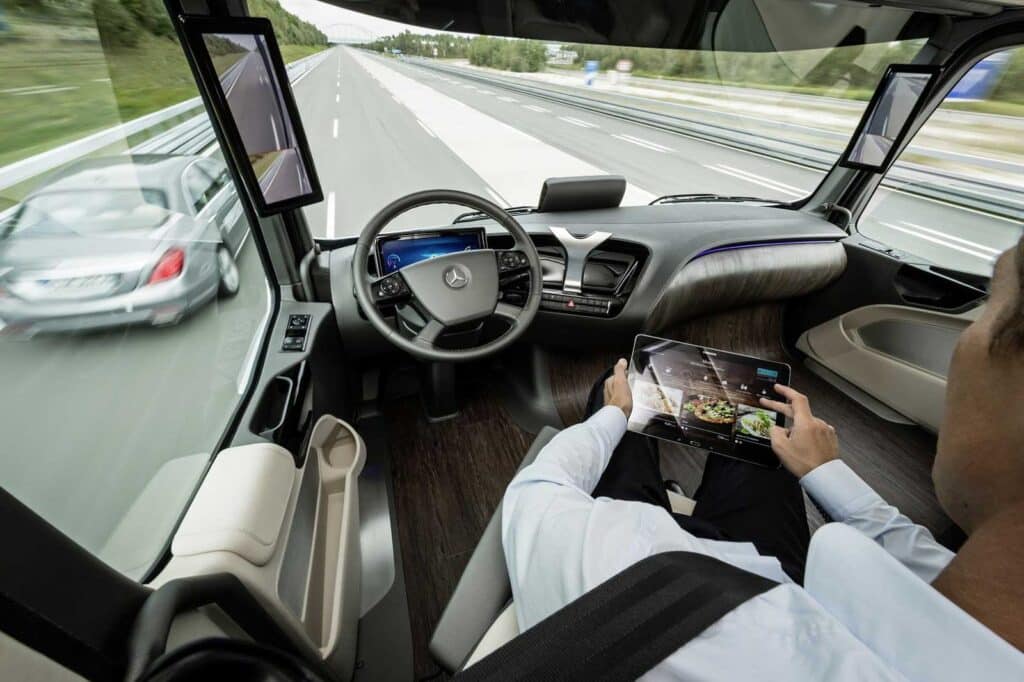Mercedes-Benz Future Truck 2025: Revolutionizing the Transportation Industry

The transportation industry is constantly evolving, and one of the most exciting advancements in recent years is the Mercedes-Benz Future Truck 2025. This groundbreaking concept vehicle showcases the possible future of long-haul trucking. With its innovative technologies, connectivity features, and autonomous driving capabilities, the Future Truck 2025 promises to revolutionize the way goods are transported on our roads. In this blog post, we’ll delve into the details of this impressive truck and explore how it can shape the future of transportation.

Contents
1. Autonomous Driving Technology
At the heart of the Mercedes-Benz Future Truck 2025 is its state-of-the-art autonomous driving technology. Equipped with an advanced radar system, numerous cameras, and multiple sensors, this truck is capable of navigating highways and city streets without human intervention. The truck’s intelligent system can detect surrounding vehicles, pedestrians, and obstacles while making real-time decisions to ensure a safe journey.
Mercedes-Benz has taken significant steps towards autonomous driving by integrating their Highway Pilot system into the Future Truck 2025. The Highway Pilot enables Level 4 automation, meaning that the truck can operate autonomously on highways without any input from a human driver. This technology not only enhances efficiency but also improves safety by minimizing human errors.

2. Connectivity Features
Connectivity is another key aspect that sets the Mercedes-Benz Future Truck 2025 apart from conventional trucks. The truck uses a sophisticated network of sensors, cameras, and communication systems to stay connected with other vehicles on the road as well as with traffic infrastructure networks.
Through this connectivity framework, the Future Truck 2025 can exchange information with other vehicles about traffic conditions, road hazards or closures in real-time. It can also communicate with smart traffic lights to optimize cruising speeds for improved efficiency and reduced fuel consumption.
Furthermore, these connectivity features facilitate effective fleet management. Companies can remotely monitor the truck’s performance, track its location, and analyze data related to fuel efficiency, driving behavior, and maintenance needs. This level of connectivity empowers businesses to make informed decisions and streamline operations for maximum productivity.

3. Aerodynamic Design
The Future Truck 2025 boasts a sleek and aerodynamic design that not only enhances its appearance but also improves fuel efficiency. The truck’s streamlined shape reduces drag, allowing it to slice through the air with minimal resistance. This aerodynamic design translates into significant fuel savings, making the vehicle more cost-effective in the long run.
Additionally, the exterior is adorned with LED lights that serve both aesthetic and practical purposes. These lights not only give the truck a futuristic appeal but also increase visibility on the road, ensuring safety during night-time operations.

4. Interior Comfort and Advanced Driver Assistance Systems
Mercedes-Benz places great emphasis on driver comfort and safety in their Future Truck 2025 concept. The interior cabin is designed with ergonomic principles in mind, offering spaciousness and a comfortable working environment for drivers who spend extended periods on the road.
Moreover, advanced driver assistance systems (ADAS) are integrated into the truck to assist drivers during their journeys. Features such as adaptive cruise control, lane-keeping assist, blind-spot detection, and automatic emergency braking enhance safety by reducing human errors and assisting drivers in navigating challenging traffic situations.

5. Efficient Energy Management
Efficient energy management is crucial for long-haul trucks to minimize environmental impact while maximizing profitability for fleet operators. The Future Truck 2025 incorporates intelligent energy management systems that optimize power consumption using various techniques.
One such technique involves regenerative braking technology that converts kinetic energy generated during braking into electrical energy stored in batteries or supercapacitors. This stored energy can be used to power auxiliary systems or provide additional acceleration when required.
Furthermore, thanks to connectivity features mentioned earlier, the truck can access real-time traffic data and adjust its speed accordingly to avoid congestion. By avoiding unnecessary stops and optimizing cruising speeds, fuel consumption is reduced, resulting in lower emissions and cost savings.

6. Safety Features
Safety is a top priority for Mercedes-Benz, and the Future Truck 2025 is equipped with a wide range of safety features to ensure the well-being of both drivers and other road users.
The truck employs active braking systems that can detect potential collisions and automatically apply the brakes if necessary. Additionally, it incorporates advanced stability control systems to mitigate rollover risks and improve overall vehicle stability.
Furthermore, the Future Truck 2025 is equipped with an advanced driver monitoring system that detects signs of fatigue or distraction in the driver’s behavior. If any such signs are detected, the truck will issue warnings or even initiate an emergency stop to prevent accidents caused by driver incapacitation.
7. Environmental Impact
Reducing environmental impact is increasingly important for the transportation industry, considering its contribution to greenhouse gas emissions. The Mercedes-Benz Future Truck 2025 addresses this concern by using alternative power sources.
While still primarily relying on diesel engines, the truck incorporates hybrid powertrains that combine internal combustion engines with electric motors. This hybrid configuration reduces fuel consumption and emissions during operations while providing additional power for acceleration or uphill driving.
In addition to hybrid technology, Mercedes-Benz is also exploring all-electric versions of future trucks to completely eliminate tailpipe emissions. These electric trucks would rely on battery packs or fuel cells for propulsion, offering a sustainable solution for long-haul transportation with zero local emissions.
Conclusion
The Mercedes-Benz Future Truck 2025 represents a significant leap forward in terms of autonomous driving technology, connectivity features, energy management systems, safety mechanisms, and environmental sustainability. With its cutting-edge innovations, this concept vehicle paves the way for a future where long-haul transportation becomes safer, more efficient, and environmentally friendly. As we eagerly anticipate the commercialization of these technologies, it’s clear that the Future Truck 2025 is set to revolutionize the transportation industry as we know it. https://carcarevip.com/




